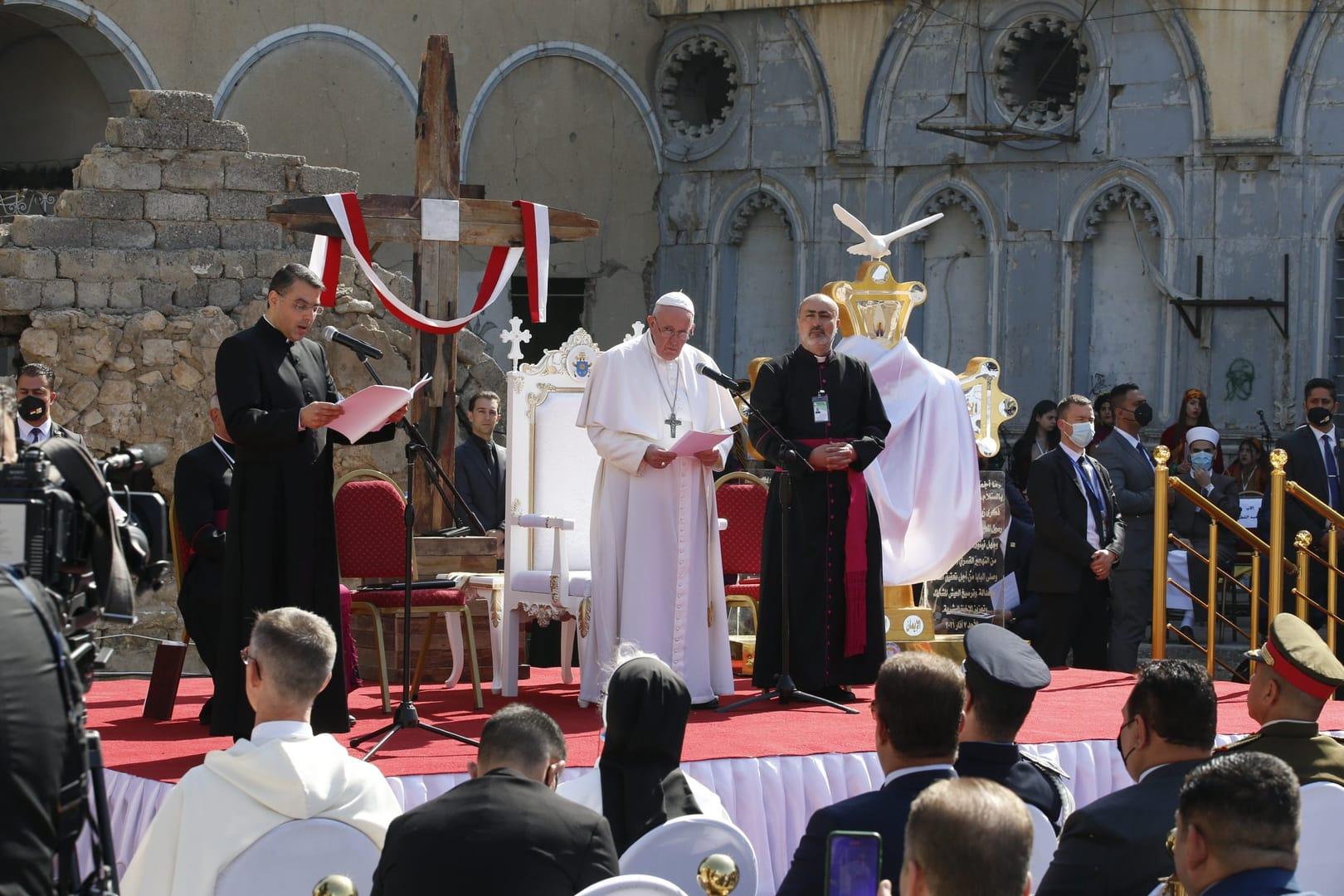ROME – Omar Mohammed knows the city of Mosul better than anyone.
He is the man behind the Mosul Eye blog, which kept the world informed about the atrocities committed by the Islamic State group — called Daesh by its victims — after it took over the Iraqi city in 2014.
He was forced to flee Iraq in 2017, the year the Islamic State was forced from the city, due to threats to his life.
“The real consequences of Daesh are much more than the religious one,” he said on Tuesday, during an online seminar titled “Shattered by Terror: Rebuilding Social Confidence in post-ISIS Mosul” organized by the Centre for the Study of Divided Societies at King’s College London.
“The economy is at the heart of the rebuilding of the confidence because it’s a commercial city that lives and thrives from economic prosperity,” Mohammed continued.
“Yes, you have the Christian neighborhoods and the Muslim neighborhoods, but all come together in the old market, reason why it’s one of the first things being rebuilt,” he said. “It allows people to recover their cultural and historical identity, while helping rebuild relationships.”
The historian, who currently lives in an undisclosed location in Europe with his wife, is convinced that reconciliation is not the first step. On the contrary, he sees it as an outcome of a sustainable plan of economic prosperity.
“When neighbors, or minorities, are able to regain some sense of normalcy in their lives, coexistence will come back too, and with it, reconciliation,” he said.
Another key element for this reconciliation, Mohammed argued, is the public recognition of the suffering caused by Daesh. For this, he had two specific proposals: First, as the city is rebuilt, there should be one or more spaces allocated to remembering the victims of the terrorist group, perhaps with murals containing the names of each individual killed.
“We need to recognize the suffering at the individual level, not only communal,” he said. “We need to make sure each person’s suffering is recognized. Everyone matters, and every life is important.”
He made this proposal as he was arguing that even though all the crimes committed by Daesh were crimes against humanity, not every minority sustained the same level of damage and systemic destruction. This is the reason why some have been recognized as victims of genocide and others might not be, at least not by the Iraqi government.
Mohammed’s second proposal is the holding of public trials by Iraqi authorities of the members of Daesh.
“People need to know that they live in a country that has a system capable of putting these criminals behind bars,” Mohammed said. “I know there’s a will from the government to hold these trials, but I don’t understand why they haven’t happened yet. People have the right to know that the government will not leave these crimes go unpunished. Once you feel justice is served, people might cool down a little bit.”
Though Daesh worked hard to sow mistrust among Iraqis, Mohammed is convinced that the social fabric began deteriorating long before their rise, and even long before the 2003 U.S. led invasion. It began, he said, during the regime of Saddam Hussein, who came to power in 1979.
“His regime manipulated the social life of the people and played on the different layers of the history of Mosul, creating differences between the communities, empowering the rule of tribes over urban life,” he said.
In the early 1970s, an interreligious gathering posed the question that — Mohammed claimed — some are afraid to ask even today: How can we live together as people from different religious traditions and different ethnicities.
“Much was invested in trying to generate communal trust and maintain the diversity of Mosul, trying to prevent future problems,” he explained.
But during Hussein’s regime, Mohammed said, it became dangerous to even pose the question, and the social fabric has been systemically deteriorating since then. There was an attempt, he added, of reviving the question of coexistence, but “the emergence of terrorism killed the movement, again.”
The challenges Iraq faces today are many, including the inability by the national security forces to guarantee the safety of the Iraqi citizens: “If this cannot be guaranteed, then all efforts of rebuild will die.”
Speaking with Crux on Thursday, Mohammed voiced concern over the Iranian-backed militias that sometimes overlap with minorities, particularly in the Nineveh Plain, where there are many grievances that have not been addressed, including militias giving Christian-owned territories to Shia Muslims coming from southern Iraq, fleeing the hardship caused by climate change.
“Daesh is using to rebuild its narrative,” he said. “And this is very dangerous. The unresolved problems of the families with Daesh members, of those who disappeared, and many other questions posed by those who’ve lost it all and children growing amidst terrible hardships, are creating the perfect environment for Daesh to regenerate itself, even if I don’t think they will be able to have the power they had before 2017.”
Despite the uphill road for both is country and his city, Mohammed has hope in the future, rooted in the young generation who’re trying to “establish a social contract that can actually contain, accept everyone. But we have to be realistic: This change won’t happen overnight. As a historian, I known I shouldn’t be optimistic. But as a citizen of Mosul, I can’t help but be so when I see the young thirsty for a better future.”
“And I hope to see Pope Francis welcome this new generation in Rome,” he told Crux. “More so than Iraqi politicians, as he’s continued to do so since his trip to Iraq last March.”
The pontiff visited Mosul on March 7 during his four-day visit to Iraq.
Follow Inés San Martín on Twitter: @inesanma
















